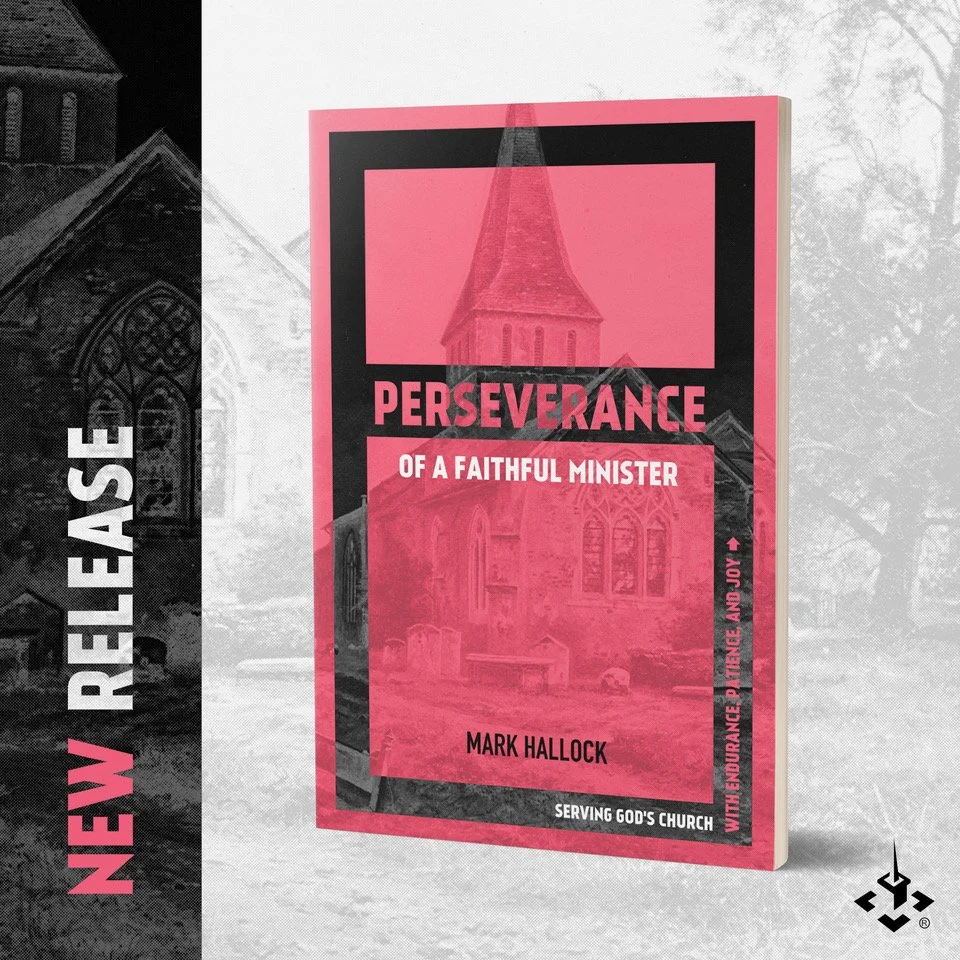Equipping Joyful, Passionate Leaders
Recently on Light & Heat:
The twenty-first-century tragedy of scandals is how ubiquitous they have become, and the church is no exception.
Applied Theology professor (and shepherd teacher) Mark Hallock on how to prioritize your personal walk with God during the seminary years.
There is a strong whiff of liberty in these words, followed immediately by a warning: God sees you.
Jesus enters into every people and culture lovingly confronting the elements in contrast with his Kingdom and yet managing to somehow also feel deeply familiar.
For any of us, God beholds what is done and who is served in secret without fanfare (Matt 6:3-4). (To be sure, he is so often the one serving me in secret, without fanfare.)
After a dream run, it seems that the dream must now surely die. The lingering question about the meaning of Jesus’ ascension now presses forward and demands the reader’s attention. If Jesus has gone into heaven, does that mean that he is simply gone? Where is Jesus in these dark days?
Jesus, the Second Person of the Trinity, is God in the flesh, “very God of very God.” So we should expect to see in Jesus the same sort of things we see in Yahweh in the Old Testament.
There is no easy fix for the human tragedy that is unveiling before our very eyes. While we pray for our leaders to make wise national security decisions, we must also pray that all sides, Arab and Israeli, Jews and Muslims, see each other as God sees each of them. There is no policy, decision or legislation that can bring this about. Hatred as strong as that which currently exists can only be overcome by the working of a sovereign God whose love is stronger than hatred itself.
Announcing our new series: The God Who Sees.
No matter how many credentials you have, your authority comes from a higher source.
What do we do with the imprecatory Psalms? Beloved Old Testament professor Russ Meek explains the unexpected ways that praying along with difficult Psalms can bring healing. We are happy to link his recent article for The Gospel Coalition.
Early in my discipleship journey, I became painfully aware of “the gap,” that distance between who God had called me to be and how I live. I could fixate on my failings and be consumed with destructive tendencies toward unhealthy introspection and despondency. Left to myself, there is a good chance I would have become “ineffective and fruitless” in my faith (2 Pet 1:8). But Todd walked alongside me.
In that concrete classroom I realized the Christian struggle with the Old Testament was not a culturally specific one, and at that time I decided I wanted to spend my life to researching, learning, and teaching how the Old Testament is indeed Christian Scripture.
The riveting story of how God moved through a humble “log college” to change the world.
Pastor Mark Hallock, one of our beloved Applied Theology profs, unpacks some practical ways to lead with love on his Leading Church Revitalization podcast.
Comer preaches a simple message: just. slow. down. Or, as Dallas Willard put it, “Hurry is the great enemy of spiritual life in our day. You must ruthlessly eliminate hurry from your life.” In other words, permitting busyness to overtake your days is tantamount to forfeiting a Spirit-filled life.
The New Testament doesn’t give pat answers about how to interpret or apply Old Testament laws, but invites us to wrestle with the question. Here, Alex Kirk ponders Christ’s fulfillment of the Law. He writes, “The degree stands completed and we are the honorary recipients. We all get to hang the diploma on our wall by faith, all its requirements having been accomplished for us by Christ.”
In this excerpt from The Perseverance of a Faithful Minister, Tennent’s own Michael Morgan reflects on the impact of William Wilberforce’s family life. “While the work to which Wilberforce had been called required that he pour himself out, family life seems to have kept filling him up.” Morgan has spent extensive time studying the life and influence of Wilberforce, his mentor, John Newton, and the vast network of ministry leaders that together shaped 18th/19th century British society—and the world.
I started to study Ecclesiastes because I thought I found in it a kindred spirit who, like me, had thrown up his hands and given up on faith and life, who had accepted the meaninglessness of these years on planet Earth and was simply waiting out the time until death would free him. What I found instead—with the help of that former mentor I mentioned—was a path through life that doesn’t involve the bottom of a pill bottle.
At Colorado Christian University’s recent “Preaching the Word” conference, Tennent’s Academic Dean, Michael Morgan, delivered two messages on I Peter 4:10-11, sharing with the pastors assembled about the nuts and bolts of expository preaching. Though he is quick to point out that he’s not a homiletics professor, Michael nevertheless spent fourteen years as a teaching pastor, honing his skills. Here he shares from experience.
With brutal honesty and humility, Russ Meek takes a good look at another one of the Old Testament’s trickiest passages. What to do with Judah and Tamar? We are happy to link his recent article for Fathom Magazine.
Israel Soong wrestles with the apologetic implications of the conflict in Ukraine. He writes, “As believers, we must not shy away from addressing human evil and sinfulness as the root cause for war. And yet, in the same breath, we must joyfully announce to the world that God himself has vanquished human sin through Jesus, who has defeated death itself, and will usher in a future in which creation itself will be redeemed, to the glory of God.”
“My academic discipline is called “historical theology,” which is something of a neologism. Up until the last hundred and fifty years or so all theology was basically “historical theology,” that is, theology was always conducted in conversation with the past. As theologians became more and more dislodged from history in the modern period, however, there was a need to add the qualifier “historical” to stress the importance of history. So much theology today is abstract and seems to have no clear grounding.”
Russ Meek returns to consider once again the strange, sad story of Jepthah’s Daughter (Judges 11). He writes, “Jephthah’s daughter… gives readers an opportunity to enter into remembrance by retelling her story, and it encourages us to sit in mourning with her by recounting her own grief and the establishment of a mourning ceremony in Israel.”
We are happy to announce the upcoming publication of Assistant Professor of Applied Theology Mark Hallock’s newest book, the Perseverance of a Faithful Minister, which will be available February 15. In it, Mark speaks specifically to pastors in church revitalization contexts about the crucial importance of perseverance for a thriving ministry. This excerpt comes from a chapter entitled “Developing and Deploying Leaders.”
We are grateful to Fathom Magazine for allowing us to reprint this excerpt of an article by Russ Meek, an Old Testament scholar who teaches from time to time at Tennent. Russ explores the ramifications of bad theology through the lens of Judges 11-12 and the head-scratching story of Jephthah.
At Tennent, we are passionate about pouring into families. Jenna Hallock, Executive Director of Family Time Training, joins us today with a review of Kathleen Nielson’s new series, Prayers of a Parent, which is a powerful tool to help any mom or dad raise children who love the Lord.































